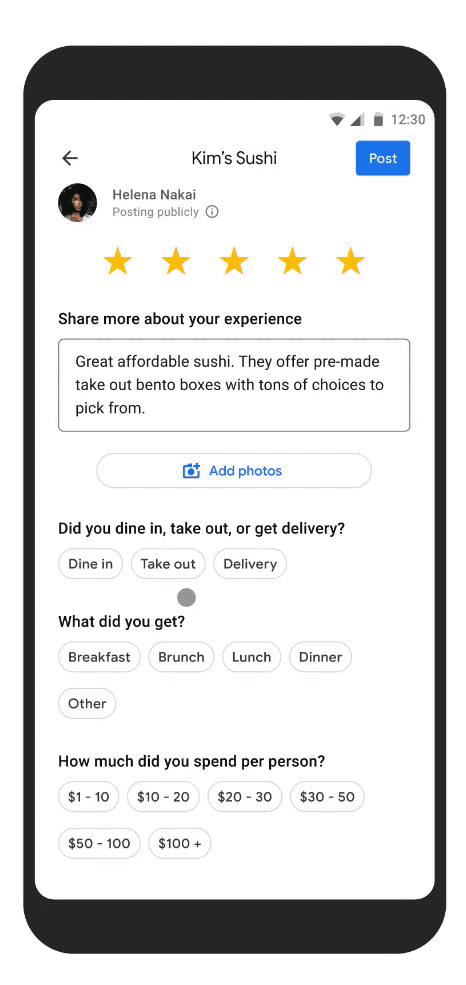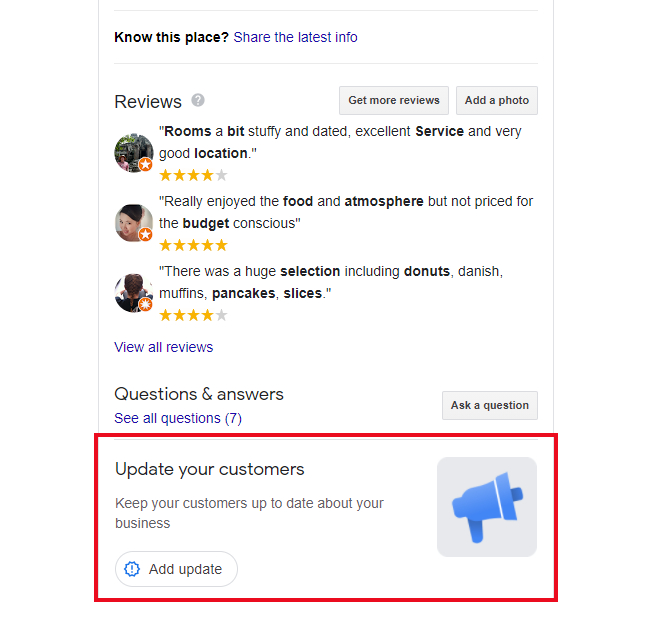Job posting schema, Google Posts for hotels, new restaurant review details, and the ability to… remove phone numbers from business listings?! Local search served up a little bit of everything this July. Here are all the updates you need to know about.
June/July core algorithm update: Part two
Google released the second half of its broad core algorithm update on July 1. As we saw in June’s roundup, this was originally intended to be a single update, but the scope of work surpassed Google’s expectations.
The July update is thought to have had less of an impact than part one, with only the ranking of spam listings seeing any major change. It’s a move to improve the quality of search—especially in markets most often plagued by fraudulent business profiles—but some legitimate businesses have also been inadvertently penalised. Locksmiths, lawyers, and estate agents are encouraged to check in on the health of their listings this month.
It’s always a good idea to take note when Google makes these updates and see if they correlate with changes in your ranking. Beyond that, it’s business as usual: follow SEO best practices to maintain an organic ranking that is less prone to algorithm volatility.
Google Maps launches new detailed restaurant reviews
Google has once again improved its review functionality for restaurants. Users can now add relevant information—such as price range, meal type (breakfast, lunch, dinner, etc.), and whether they ordered take-out, delivery, or dined in—with just a few clicks. It’s all done with the same ease of choosing a star rating, encouraging reviewers to divulge more details without having to type out long treatises.

GIF: Google
Google, as we know, has long sought to become king of online reviews, overtaking established industry leaders like Amazon, Trip Advisor, and Yelp. Although the search giant still has its work cut out in product and travel reviews, it has made significant strides towards the summit of restaurant-review mountain. Its delivery attributes, for instance, have made it far easier for users to find restaurants via conventional search and the maps channel.
By adding another layer of detail to its restaurant review format, Google is closing in on Yelp’s impressive search functionality. After all, users can already use Google to search restaurants by genre, rating, and delivery availability—and this new crowdsourced review data will soon add price and meal type as custom search criteria.
This new restaurant review functionality is currently available for mobile users (Android and iOS) in the US. Additional countries will be supported in the near future.
Verified Knowledge Panels lose Google Posts (but hotels gain them)
On July 20, Google discontinued Google Posts for businesses with verified knowledge panels. This change only impacts verified knowledge panels, not the local Google Posts managed directly in Google My Business (GMB).
Why remove functionality in this way? Because knowledge panels, which already offer a wealth of relevant information to users, are generally tailored for brand-wide, location-agnostic contexts. Google Posts, on the other hand, are ideal for local, store-specific messaging. Google is simply creating a clearer distinction between the brand level and the local level.
In contrast, some hotels and other hospitality listings now appear to be able to promote their business via Google Posts. Such businesses were previously unable to do so as a consequence of Google considering the hospitality industry to be a special exception. The search giant gives hotels their own unique search options and knowledge panel features, which makes managing a hotel listing very different than other types of businesses.

Image: Nevena Ivanova
Google Posts for hotels are not yet ubiquitous, but an industry-wide rollout is well underway. With the intense competition between hotels, few can afford to ignore a fresh opportunity like this. Take advantage before your competitors make it common practice.
You can now remove phone numbers from GMB listings
In a new Google Help document, Google explains how to businesses can hide their phone numbers on their listings. This may seem counterintuitive, but there are various business types that have no need for a number. Farmers markets, for instance, rarely take calls but were compelled to list contact numbers. Incomplete listings, after all, usually rank lower and inspire less confidence in users.
This update, very simply, will allow such businesses to ignore the phone number field without attracting any undeserved ranking or UX penalties.
Google adds markup and guidelines for job postings
Recruiters and talent acquisition specialists now have a new markup that allows users to apply to job postings directly. It’s a timely development given the current labour shortage in the US, but there are a number of new guidelines to observe:
- Verify that there are no scammy or spammy job posts on your site.
- Ensure a good user experience.
- Remove expired job posts.
- Make sure that the job’s posting date is genuine.
- Don’t include wrong or misleading information in the job post or the markup.
Speaking of jobs, we’re always on the lookout for talented geeks who have the courage, curiosity, and enthusiasm to make the most of their talents. If you’re looking for your next challenge in digital—or you know someone who fits the bill—head over to our careers section to learn more.




